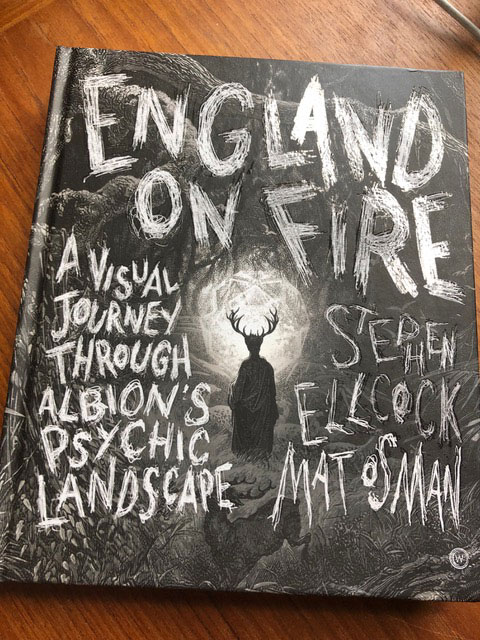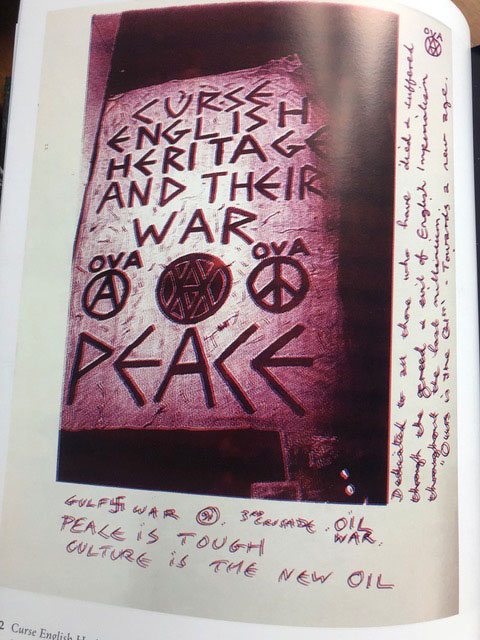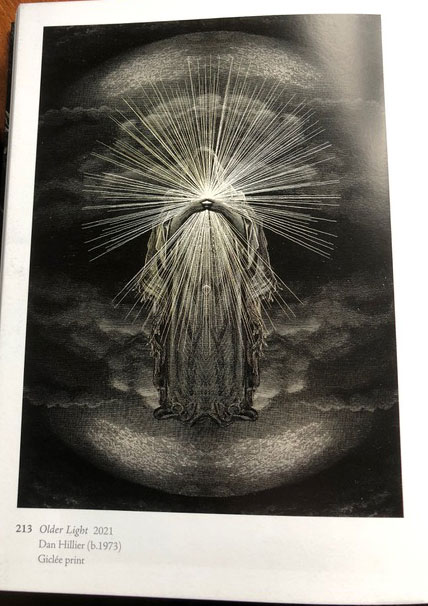
Stephen Ellock and Mat Osman (Watkins Publishing)
There are a couple of Englands.
One is made of motorways, inner-city car parks, out-of-town malls, mobile phone masts and hyper speed. Everything, even ir/reality, is commodified, commercialised and transactional. A vast cold space.
The other England is buried, hidden, somewhere deep beneath. This England is made of desire, magic and jouissance – the chance of happiness beyond the mere fulfilment of consumer needs.

Stephen Ellock’s new book is both a collection and history of English art that seeks to uncover the seething spiritual world underneath the temporal one – in this, Ellcock is less a curator, and more like an excavator or palaeontologist.
Modern art curation is usually a case of conforming to an acceptable, expected format, but Ellcock takes one step beyond in this ‘visual journey through Albion’s psychic landscape’, as the book is subtitled. Spires, haywains and thatched cottages are conspicuous by their absence. Instead, Ellcock presents an array of artistic provocation and illumination. This ranges from Blake (of course), Paul Nash, Turner, Ithell Colquhoun and Derek Jarman to Jamie Reid, Tacita Dean, Sutapa Biswas, Julie Goldsmith, the spirit photographer WS Hobson – to name but a smattering of insouciant visionaries following their own mad logic.

There are hundreds of images and artists here, arranged into self-explanatory chapters such as ‘Weeds and Wildness’, ‘Myth, Magic and Ritual’, ‘Arcadia’, and ‘Visions’ which collectively, in scope and insight, are not just mind blowing, but mind defining – approaching the heights of epiphanic beauty.
The visual narrative is underpinned by aperçus and short texts from Suede-head and author Mat Osman who, eschewing the Theory by numbers – often adding up to 0 – that typifies contemporary art commentary, simply tells a complex tale. For what is a community without the stories we tell ourselves about us?
Not all is rosy in this psychic landscape, Osman admits, and this book does not seek to lead readers up the garden path – it’s not, and never was, Eden. Myth can also harm if it’s used only to fortify against the truths of a situation. ‘England is a code whose key is lost’, ‘England is a shallow grave with wild flowers for a headstone’, ‘England is a body with only its scars and broken bones holding it together’ Osman makes clear. But, this deep, wild England also contains the euphoria of possibility – therein lies the importance and joy of this book, the pages of which mingle with our dreams.
Richard Cabut
